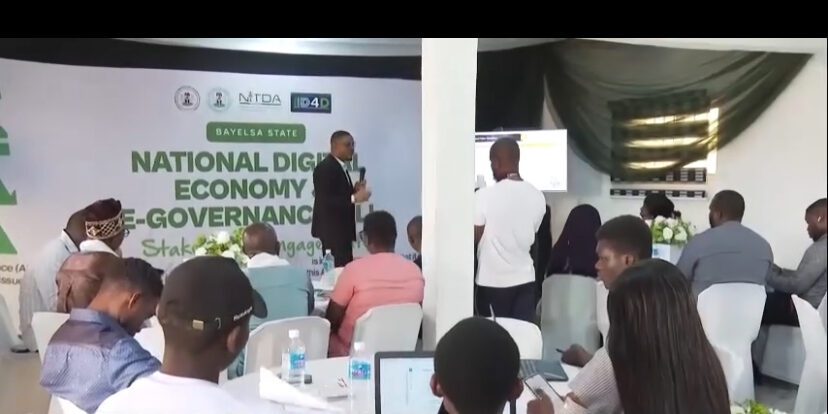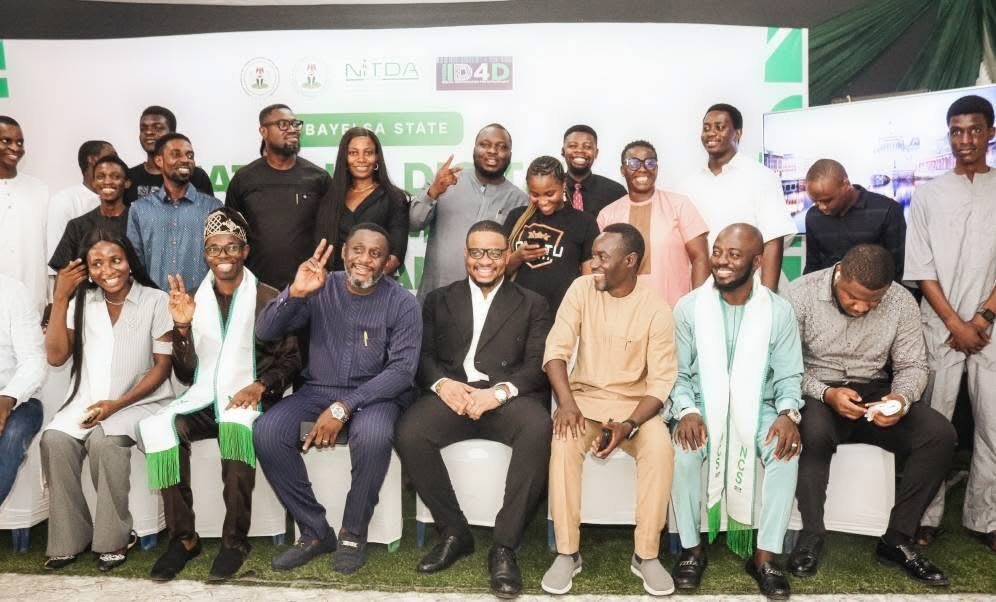On February 27, 2025, key stakeholders in Bayelsa’s tech and governance ecosystem gathered at Olotu Square, Yenagoa, for the National Digital Economy & E-Governance Bill – Stakeholder Engagement Session. Organized by NITDA Nigeria, the Federal Ministry of Communications and Digital Economy, and Nigeria ID4D, the session aimed to refine and advance the proposed bill that seeks to shape Nigeria’s digital economy and governance structures.
Understanding the Bill and Its Impact

The bill is designed to create a legal framework that enhances digital transactions, service delivery, and e-governance across Nigeria. By improving regulatory certainty, the proposed law is expected to accelerate digital transformation, making governance more efficient and promoting a tech-driven economy.
In Bayelsa, where digital infrastructure is still developing, such a policy could be a game-changer, fostering innovation, digital inclusion, and investment in local tech ecosystems.
Key Takeaways from the Engagement Session

The engagement session provided an opportunity for stakeholders to review the bill, make observations, and contribute to its refinement. Discussions were insightful and productive, emphasizing a collaborative effort between the government and private sector to ensure the bill reflects the realities of its intended users.
Some critical points raised during the breakout sessions included:
✅ The need for digital hubs and infrastructure in local communities to bridge the digital divide.
✅ Clarification on policy implementation—Who are the policymakers responsible, and how can citizens engage with them?
✅ Inclusion of clear regulations for digital transactions to enhance trust and security in Nigeria’s digital economy.
A Milestone for Digital Growth in Nigeria
Once refined and passed, this bill will mark a significant milestone in Nigeria’s digital transformation journey. It will not only drive economic sustainability but also lay a solid foundation for e-governance, ensuring that digital services are more accessible, efficient, and transparent.
The event was a convergence of tech experts, policymakers, and industry leaders—all working towards a shared goal: to create a robust digital economy that benefits businesses, government institutions, and citizens alike.
Final Thoughts

As Nigeria moves towards a fully digital economy, engagements like this are crucial. They provide the platform for meaningful discussions, stakeholder input, and policy refinement, ensuring that technology serves the people and drives national development.
Bayelsans must continue to engage, contribute, and advocate for digital policies that address local realities while positioning the state for growth in the global tech space.















